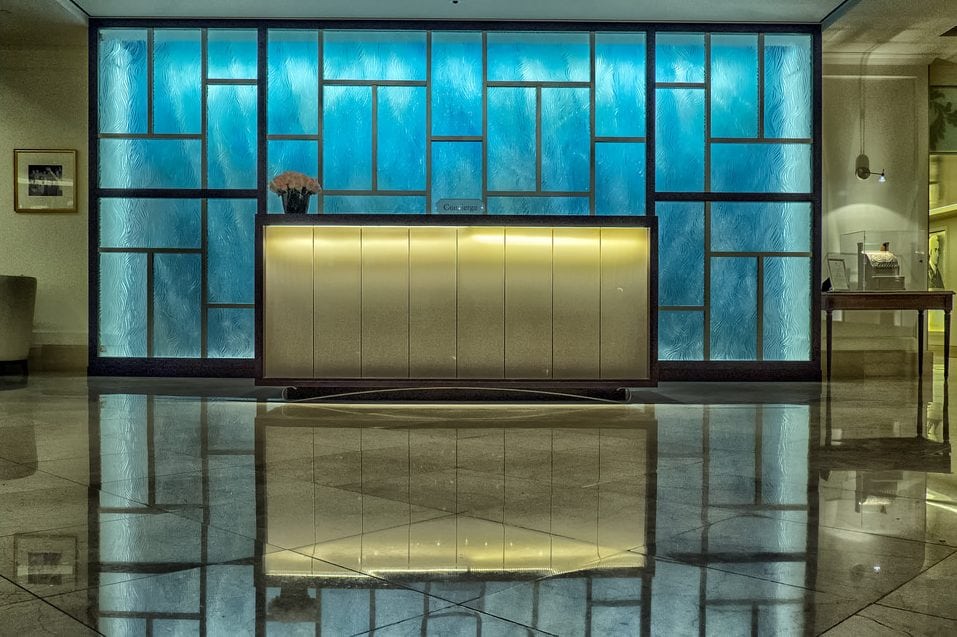Skift Take
With the Brexit vote just behind us and U.S. elections looming, some form of stability — eventually — will be a welcome change of pace for companies that cater to corporate travelers.
As travel companies have reported second-quarter earnings over the past couple of weeks, the reaction when it comes to corporate travel has generally been resigned acceptance.
Airlines and hotels have largely said that growth from business travel customers is slow and prices soft, pointing to a sluggish global economy. The United Kingdom’s decision to leave the European Union added fresh uncertainty to the mix, while security concerns continue to roil some destinations.
Other recent forecasts previewed what corporations are reporting. According to a report from the Global Business Travel Association, business travel spending is projected to increase 5.2 percent worldwide but less than one percent in the United States.
After examining comments from executives at some of the world’s largest airlines and hotel companies, we offer these takeaways:
Brexit Could Be a Mixed Bag for Airlines
American Airlines Group president Scott Kirby said he expects the decline of the British pound following the Brexit vote to be a definite negative for the company, but saw a potential lift in business in the near term.
He said the number of business customers — consultants, lawyers, bankers — flying across the Atlantic in both directions is likely to rise as everyone is “figuring out what the heck this means and what are we going to do.”
But the most potential damage could be if business confidence takes a hit, Kirby said.
“One of the first things businesses do is cut [the] travel and entertainment budget,” he said. “That’s not something that would uniquely affect the UK or the EU, it will be a broader impact.”
Corporate Weakness Is Prompting Airlines to Adjust Capacity
Both United and Delta said that they were reducing capacity or scaling back on growth, in part due to mediocre corporate demand.
James Compton, United’s chief revenue officer, said corporate travel bookings were “essentially flat” with revenue down about 3 percent. He said corporate yields were expected to soften further through the rest of the year.
“Our capacity adjustments that we made to the rest of the year are across the system both international and domestic, and we’ll continue to do that as we watch demand going forward,” he said.
Some Carriers Are Still Planning Growth with Business Travelers in Mind
JetBlue president and CEO Robin Hayes said the low-cost carrier is considering a potential expansion into Europe, in part because it would provide service to business hubs.
He said the priority remains catering to important business routes in the U.S. such as LaGuardia to Boston, but said the airline is thinking bigger.
“So there is definitely a point of relevance to corporate customers that they want you to be able to serve other large business markets around the world, and obviously some European cities that you would include in that,” Hayes said.
Hotels Are Noticing Corporate Weakness from Several Sectors
Christopher Nassetta, president and CEO of Hilton Worldwide, told analysts that corporate volumes were relatively flat with rates up just a little bit. Transient business grew in the low 2 percent, with group performing slightly better.
“I wish I could be precise, but the real truth is that the weakness is broad-based,” he said. “When I talk to our sales team, which I do frequently, I can’t like pick out whether it’s pharma or technology or financial services. I would say again just because everybody has been experiencing in the fourth quarter [and] particularly in the first quarter weakness in the macro environment, I think it has been sort of a general dampening of demand across most industries.”
Arne Sorenson, CEO of Marriott International, said room sales of the company’s nearly 300 largest corporate customers had weakened to less than 1 percent growth in the second quarter.
Not much is expected to change in the near term, Sorenson said.
“We’re essentially forecasting that kind of steady state — weak corporate transient demand — not falling off a cliff in any respect, but just sort of continuing to bump along,” he said.
Marriott chief financial officer Leeny Oberg said that group business was a bright spot. After revenue per available room for groups increased 7 percent in the quarter, the segment “continues to look solid’ for the second half of the year, she said.
Paris Hotels are Seeing Weakness in Group Bookings Because of Fear
Sebastien Bazin, CEO of France-based AccorHotels, said most regions that the company operates in are stable in leisure versus business and groups. But the French market is suffering from travelers’ fears.
“So what we see is the segments which are widely impacted are the ones who actually have a choice of destination,” he said. “This is leisure and at some point that’s going to be business groups. So typically, if you think of a conference, if you’re organizing a conference for a company, do you want to be in Paris today versus Vienna or Barcelona? That’s a good question.”
Skift associate editor Deanna Ting contributed to this report.
The Daily Newsletter
Our daily coverage of the global travel industry. Written by editors and analysts from across Skift’s brands.
Have a confidential tip for Skift? Get in touch
Tags: airlines, business travel, corporate travel, hotels
Photo credit: The concierge desk at the Langham Hotel in Boston. In earnings calls for the second quarter, hotel and airline CEOs said corporate travel has been soft. Timothy Neesam / Flickr
